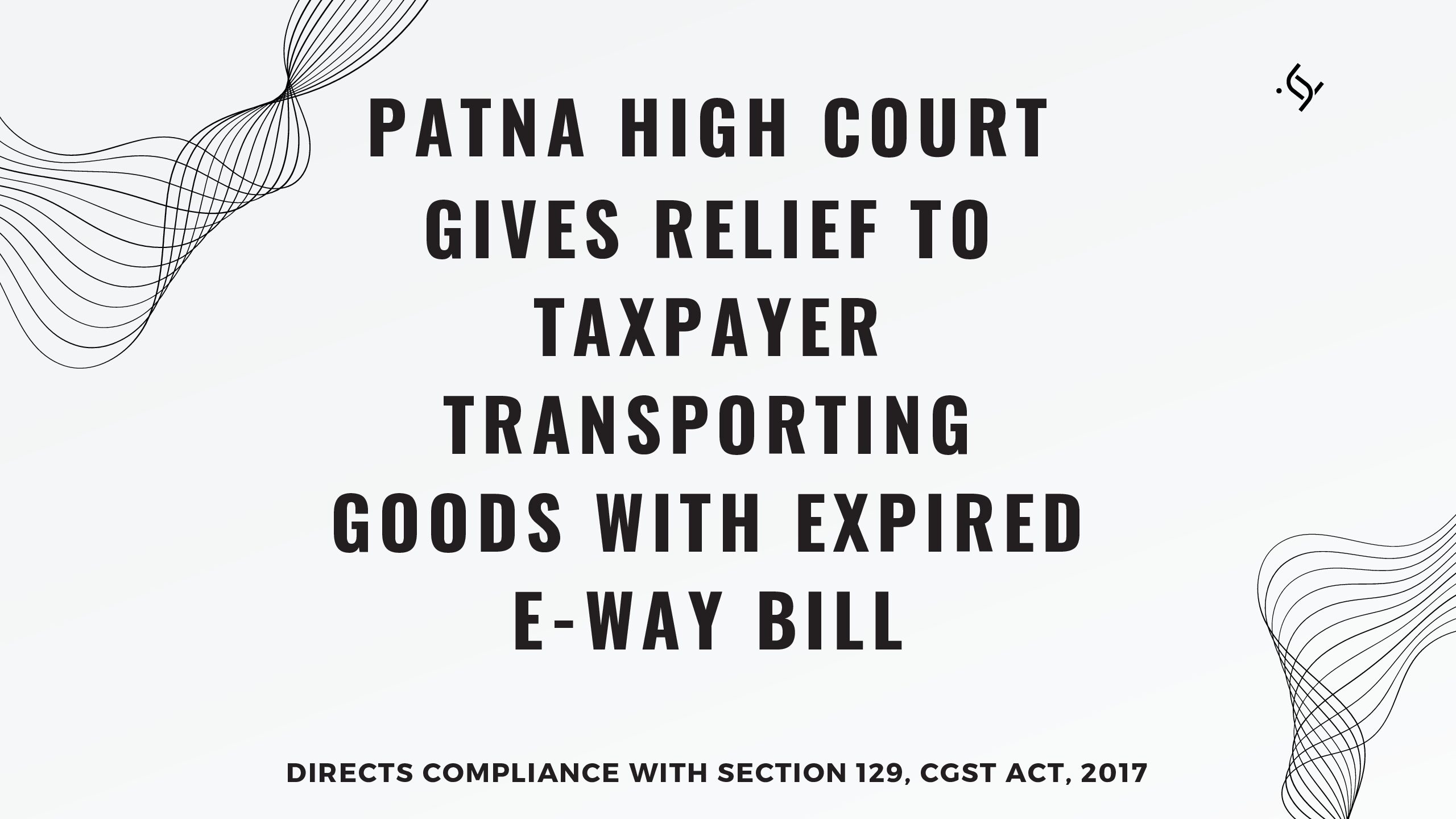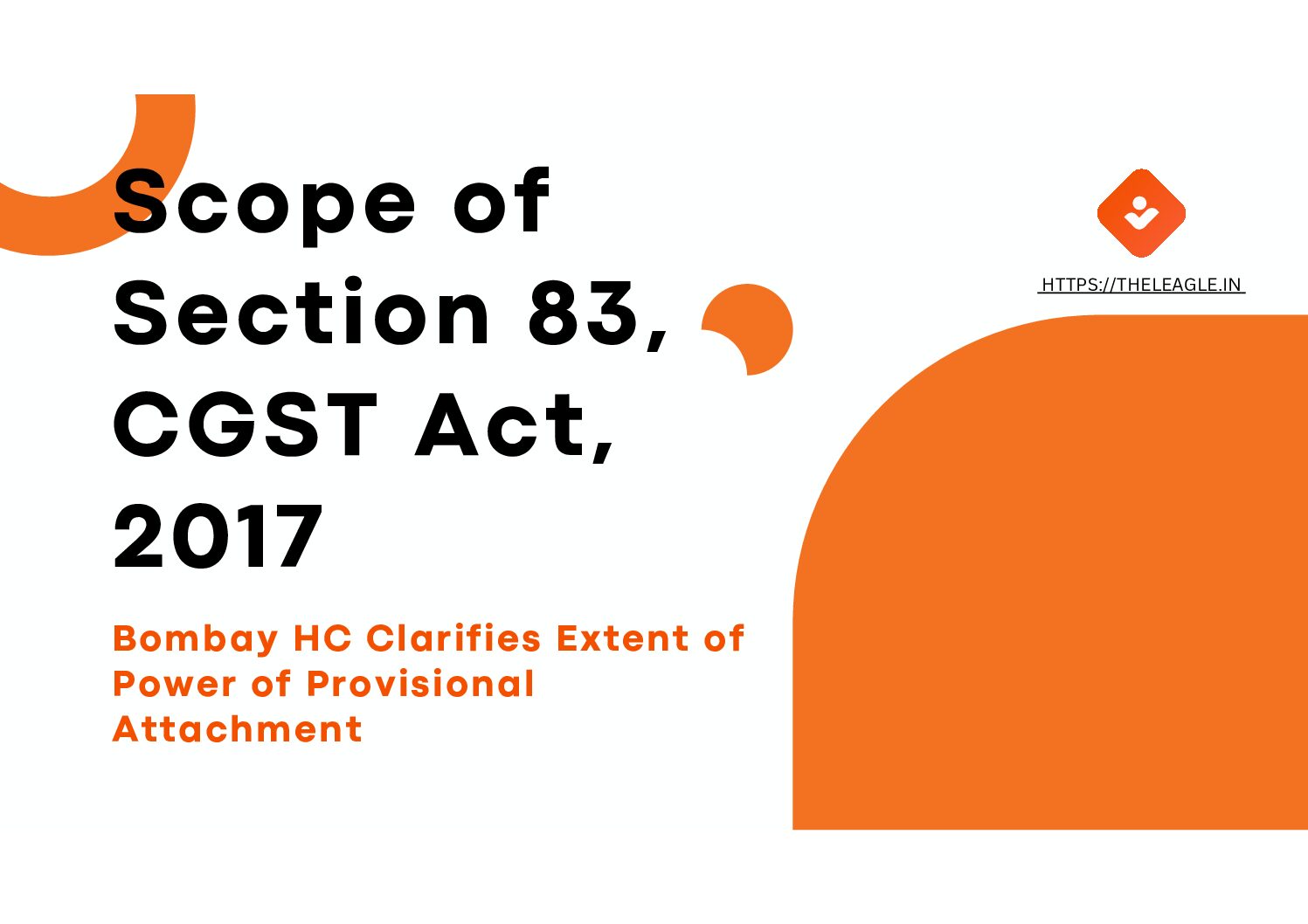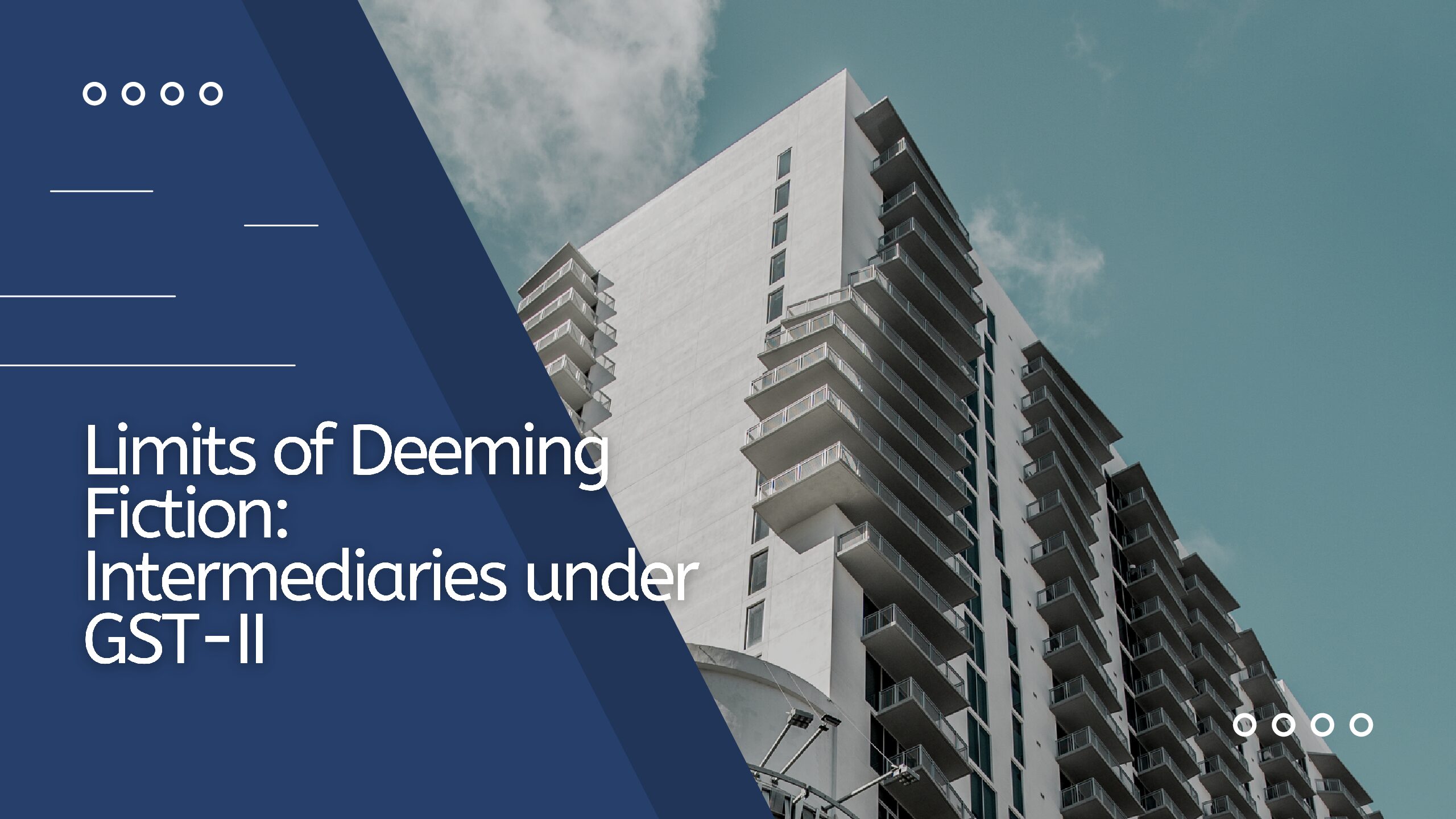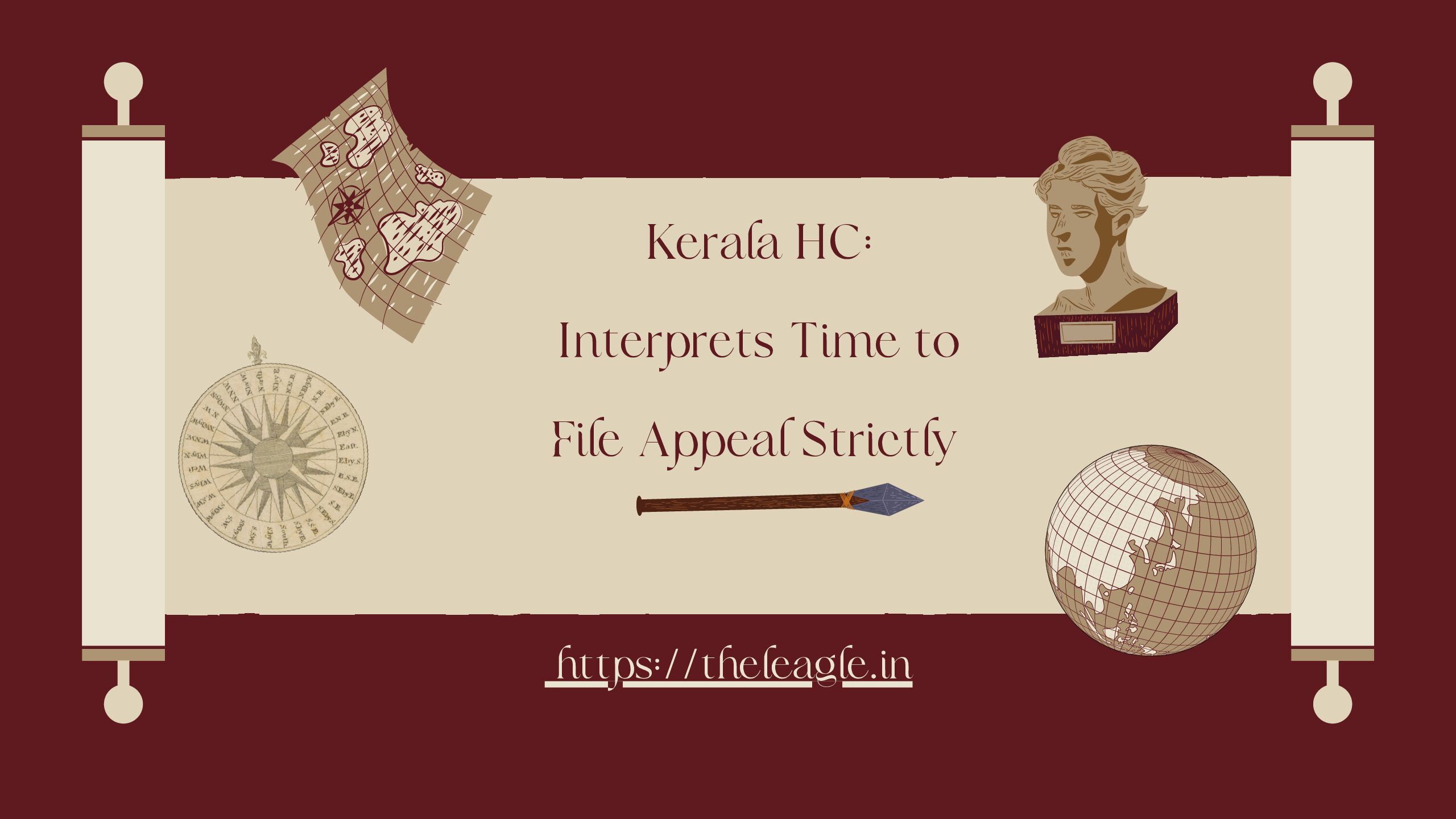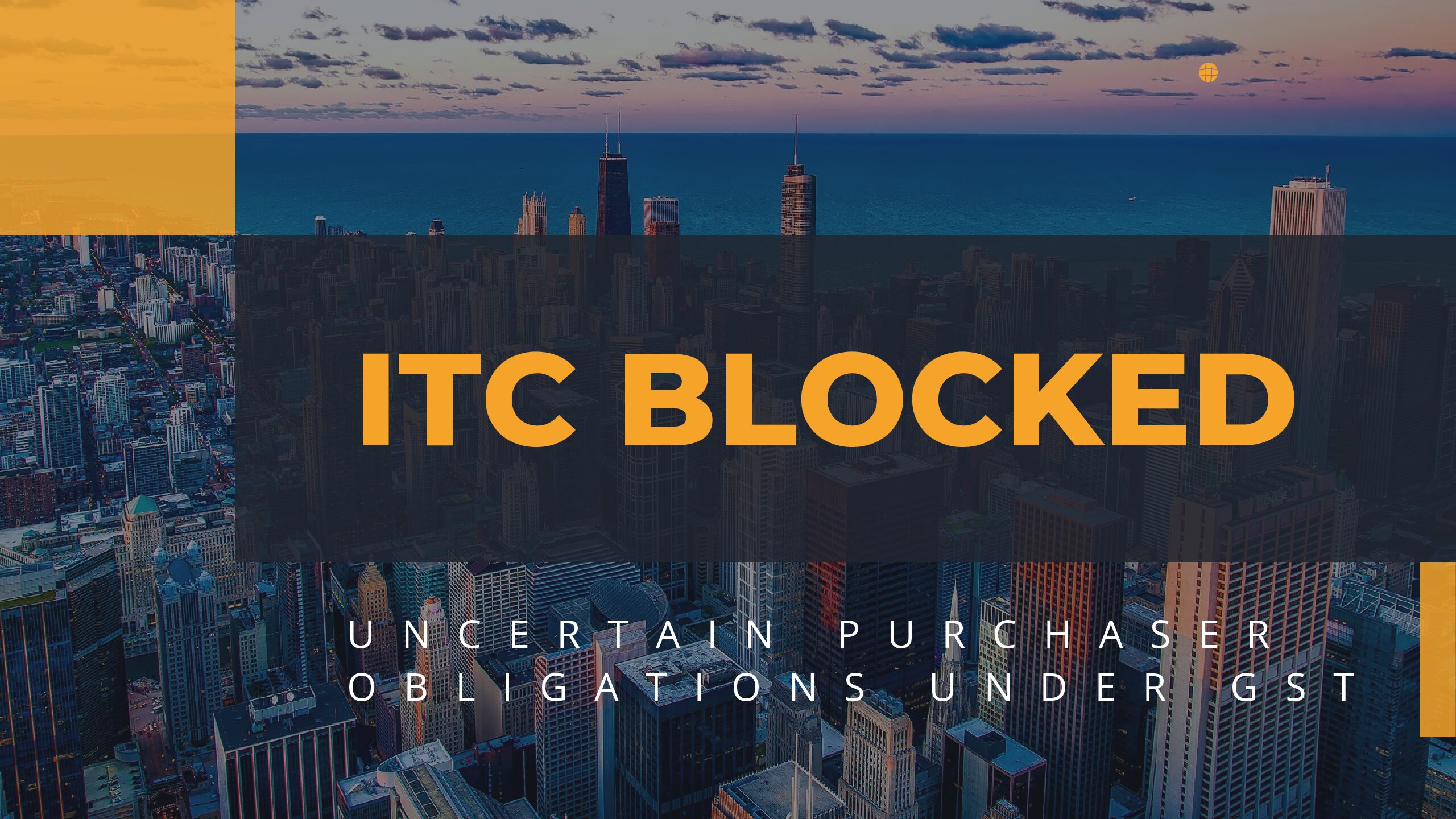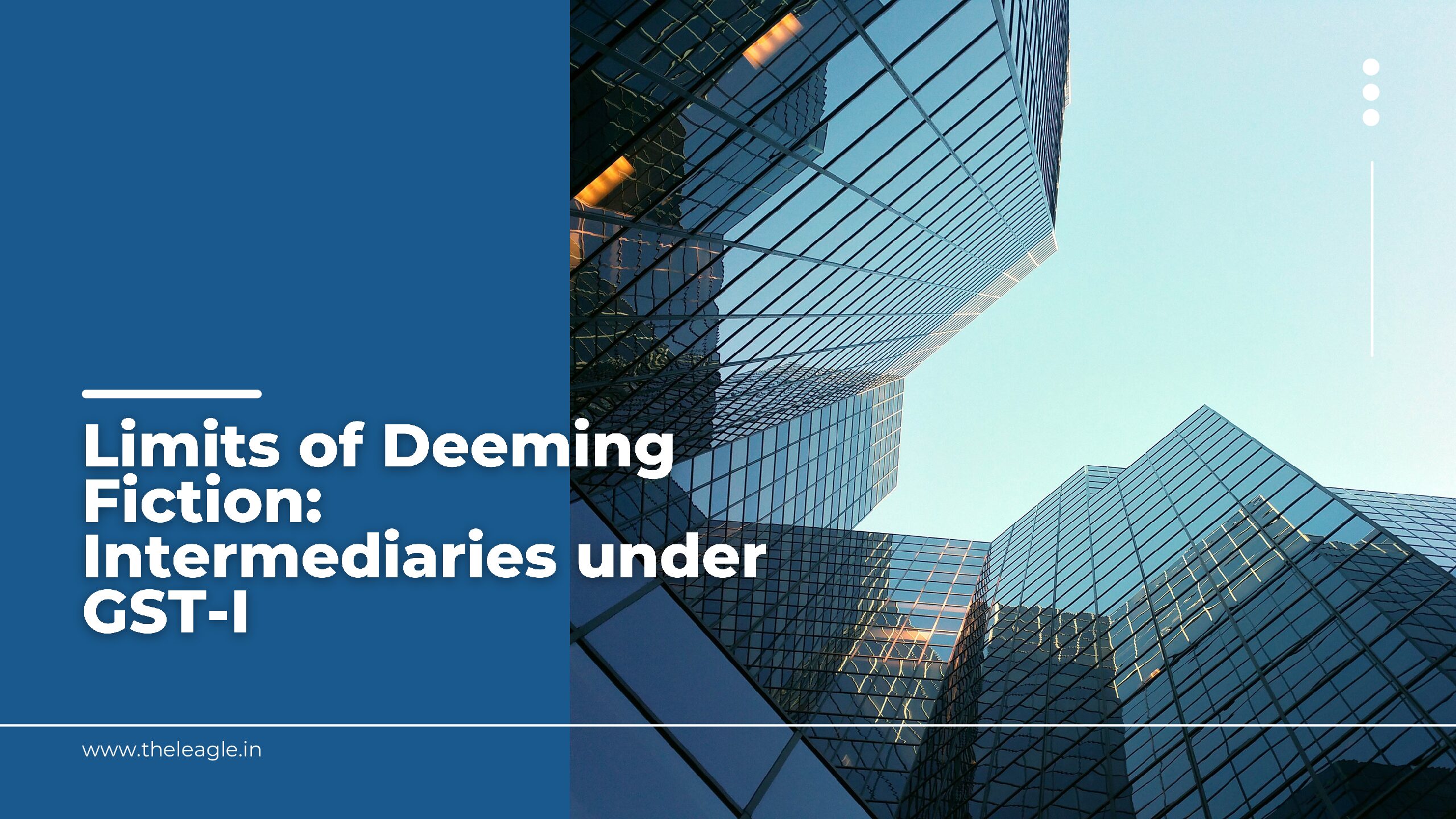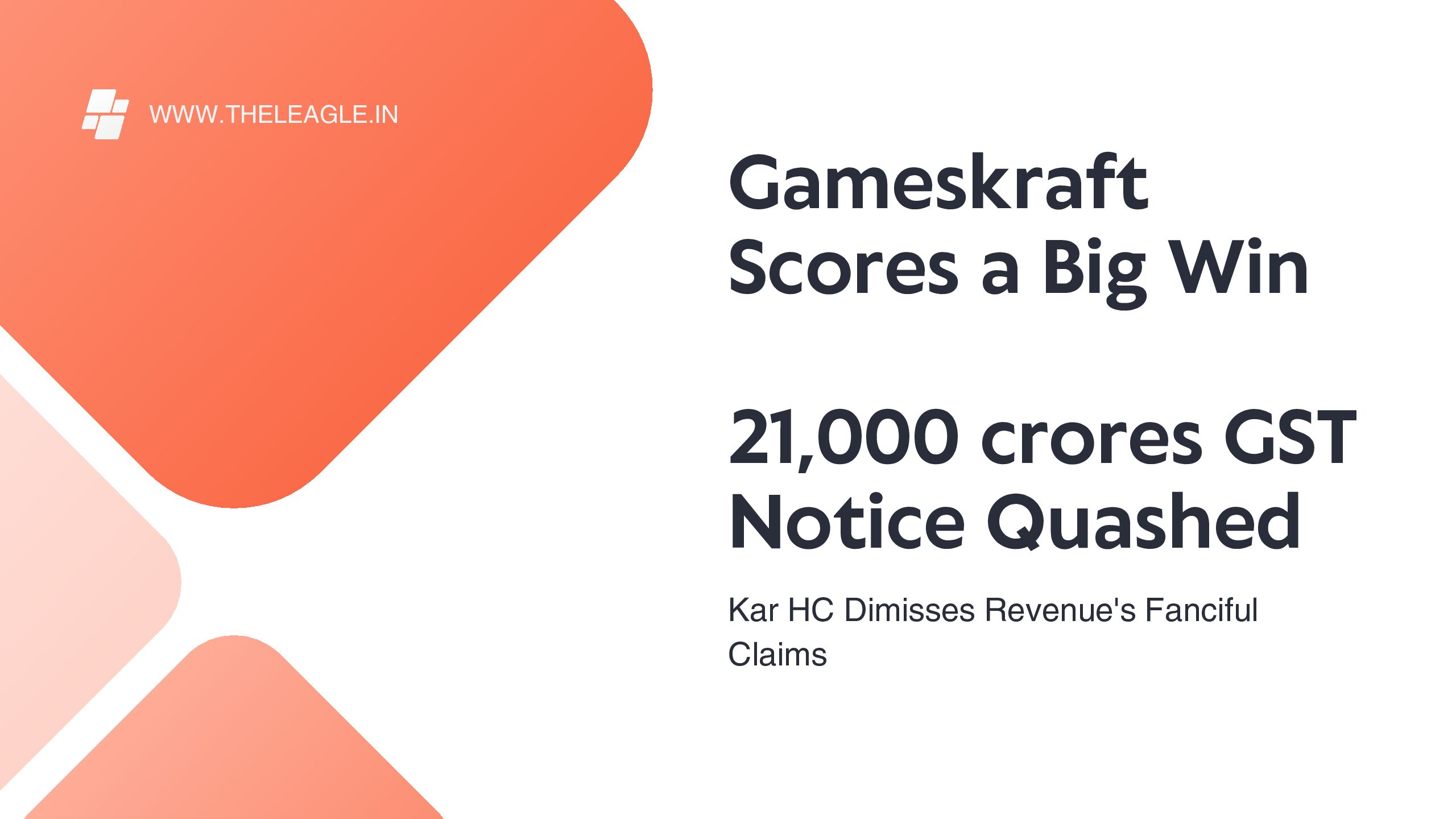Constitutionality of Section 13(8)(b), IGST Act, 2017
Introduction
Constitutionality of Section 13 (8)(b), IGST Act has attracted the attention of different Courts. The reason for suspect constitutionality of Section 13 (8)(b), IGST Act is that incorporates a deeming fiction whereby the place of supply for services by an intermediary is in India, i.e., place of service provider instead of the place of recipient. The petitioner’s case was that Section13(8)(b), IGST Act departs from the destination-based character of GST, violates Fundamental Rights under Art 14 and Art 19(1)(g) of the Constitution, and is beyond the Parliament’s competence. There are multiple and varied judicial opinions on the issue and I will explore them in a two-part post. In the first part of this post, I will focus on the judgment pronounced by the Gujarat High Court and by a 2-Judge Bench of the Bombay High Court, both of which leave a lot to be desired. I argue that both decisions engage with the underlying issue superficially and adopt less than adequate reasoning to support their conclusions.
The Gujarat High Court Upholds GST on Intermediaries
In Material Recycling Association of India case[1], petitioners challenged the constitutional validity of Section 13 (8)(b), IGST Act, 2017. Petitioners were intermediaries providing services to their clients located outside India and earning in foreign convertible currency. As per Section 13 (8)(b), IGST Act, 2017 if a supplier provides intermediary service to a person situated outside India, place of supply of services is deemed to be where the supplier is located. This deeming fiction thereby treats such a transaction as liable to GST. The petitioner challenged the provision as ultra vires of Art 265, 286, Art 14, and Art 19 of the Constitution. Petitioner’s various arguments were underpinned by the central idea that their services constituted as export of services. And export of services or goods could not be subjected to GST since it was a destination-based tax whereunder exports were zero-rated. Further, since the supply of services took place outside India the Parliament lacked competence to enact such a provision.
The Gujarat High Court’s analysis is pithy, and essentially gives a free pass to the legislature by stating that the petitioner’s services could not be considered as an export of services ‘in order to levy CGST and SGST’ and that:
… it would not qualify to be export of services, more particularly when the legislature has thought it fit to consider the place of supply of services as place of person who provides such service in India. (para 66)
It then curiously did not even agree with the petitioner that the provision in question was a deeming provision and instead upheld the constitutionality of the provision by relying on the fact that a similar situation existed in the pre-GST regime and noted:
Therefore, this being a consistent stand of the respondents to tax the service provided by intermediary in India, the same cannot be treated as “export of services” under the IGST Act, 2017 and therefore, rightly included in Section 13(8)(b) of the IGST Act to consider the location of supplier of service as place of supply so as to attract CGST and SGST. (para 67)
Both reasons collapse under the burden of scrutiny. First, let’s decode ‘legislature’s wisdom’. As per the Gujarat High Court, the legislature ‘thought it fit’ to include various transactions in the scope of GST to maximize revenue collection. Legislature enacting provisions to increase revenue collection in no way precludes Courts from examining if the provisions under challenge transgress the Constitution. In fact, one would argue that the primary function of a constitutional Court is to examine if the legislature is enacting provisions within the constitutional limits. For example, in this case, it was incumbent on the Gujarat High Court to examine if the impugned provision satisfied the requirements of Art 286 and/or Art 269A of the Constitution, and whether Art 14 and Art 19(1)(g) were not violated; but the judgment is completely bereft of any such analysis.
The second reason proffered by the Gujarat High Court was that a similar legal position prevailed in the pre-GST regime. To conclude that a similar provision existed in the pre-GST regime is evidence of the constitutionality of a provision enacted under the IGST Act, 2017 is an unwarranted and unreasonable statement especially when the High Court could not cite any precedent that squarely covered the issue. The Gujarat High Court’s reliance on the fact that similar provision existed in service tax regime to conclude that the Revenue Department has a ‘consistent stand’ and creates a presumption of constitutionality in favour of the provision is a dereliction of duty by a constitutional Court. And, even if there was a judicial decision that upheld the constitutionality of the pre-GST provision, it was incumbent on the Gujarat High Court to examine if the decision remained valid after the constitutional changes that accompanied GST. Nonetheless, the Gujarat High Court’s decision did not conclusively settle this matter as a similar matter was argued before a Division Bench of the Bombay High Court.
Division Bench of The Bombay High Court Issues a Split Verdict
The Bombay High Court in Dharmendra M. Jani case[2] decided a similar petition almost a year after the Gujarat High Court’s decision in Material Recycling Association of India case, but it ended in a stalemate with the Division Bench rendering a split decision.
Justice Ujjal Bhuyan, held that Section 13 (8)(b), IGST Act, 2017 was unconstitutional and rested his conclusion on three observations. First, he examined the aforesaid provision on the touchstone of Art 286 of the Constitution and noted that the supply of service by an intermediary was outside Maharashtra and India. As per him, Section 13 (8)(b), IGST Act, 2017 had created a deeming fiction treating the export of service by an intermediary as an intra-State supply and it was definitely ‘an artificial device created to overcome a constitutional embargo.’ (para 49) Second, he observed that creating a deeming provision such as Section 13(8)(b) where the location of the recipient of service provided by an intermediary though outside India has been treated in India ‘runs contrary to the scheme of the CGST Act as well as the IGST Act besides being beyond the charging sections of both the Acts.’ (para 54) His third reason referred to the transaction’s lack of nexus with India and he concluded that:
… section 13(8)(b) of the IGST Act not only falls foul of the overall scheme of the CGST Act and the IGST Act but also offends Articles 245, 246A, 269A and 286(1)(b) of the Constitution. The extra-territorial effect given by way of section 13(8)(b) of the IGST Act has no real connection or nexus with the taxing regime in India introduced by the GST system. (para 56)
While Justice Bhuyan’s opinion was correct in identifying the lack of nexus and that the provision undermined GST’s fundamental principle of destination-based consumption tax, he failed to clearly articulate as to ‘how’ Section13(8)(b), IGST Act, 2017 contravened Art 286 of Constitution. Art 286(1) prevents the State from levying GST on a supply that takes place outside the State or a supply that takes place in the course of import of goods or services into India’s territory or their export out of India’s territory. While Art 286(2) empowers the Parliament to determine principles for determining when a supply of goods or services takes place in any of the two ways mentioned in Art 286(1). It is unclear in Justice Bhuyan’s opinion as to which aspect of Art 286 does Section 13 (8)(b), IGST Act, 2017 specifically contravene and what is the constitutional embargo that the legislature is trying to circumvent.
At the same time, Justice Bhuyan’s opinion was notable for understanding that while the source of legislative power regarding the inter-State supply of goods or services could be traced to Art 246A and Art 269A of the Constitution, there were constitutional restraints on such power, such as Art 286 of Constitution, and the impugned provision needed to be examined on those touchstones. More importantly, unlike the Gujarat High Court, he did not accept the argument that the existence of a similar provision under the service tax regime precluded a challenge to Section 13 (8)(b), IGST Act, 2017. He instead stated that the validity of Section 13 (8)(b) read with Section 8 of the IGST Act, 2017 had to be examined on the touchstone of relevant constitutional provisions and not by relying on previous legal provisions. Though he fell short of clearly specifying the nature and extent of constitutional transgression.
Justice Abhay Ahuja in his separate opinion upheld the constitutionality of Section 13 (8)(b), IGST Act, 2017. He gave a ringing endorsement to the Gujarat High Court’s decision in Material Recycling Association of Indiacase, though he added his reasons, which were equally if not less convincing. I will only briefly mention his reasons since his engagement with the petitioner’s argument is almost cavalier.
Justice Abhay Ahuja pithily observed that Section 13 (8)(b), IGST Act, 2017 was not contrary to the destination-based principle of GST. He observed that since under GST taxation is on supply by intermediaries and the same was characterized as an inter-State supply, there was no conflict thereby completely missing the thrust of the petitioner’s argument. He also incorrectly stated that the definition of export of services being a general provision would be inapplicable since there was a specific provision defining intermediary. Again, not realizing that the two provisions operated independently and performed different functions.
Justice Ahuja’s examination of the constitutional dimension is worth discussing in more detail. He began by interpreting the scope of Parliament’s power under Art 269A and Art 286 of the Constitution too widely. He noted that while imports had been deemed to be inter-State trade or commerce under IGST Act, 2017, Art 269A of the Constitution did not take away the power of the Parliament to stipulate ‘any other supply’ to be a supply in the course of inter-State trade or commerce. (para 103) Art 269A(5) specifically provides that:
Parliament may, by law, formulate the principles for determining the place of supply, and when a supply of goods or of services, or both takes place in the course of inter-State trade or commerce.
Clearly, Art 269A (5) of the Constitution empowers the Parliament to determine the situs/place of supply for inter-State trade or commerce. Thus, when Justice Ahuja says that Art 269A does not take away power to include any supply as inter-State trade or commerce, it should have been preceded by an examination if the Parliament by exercising its power under Art 269A(5) – to enact Section13(8)(b), IGST Act, 2017 – has acted within the scope of its power and has adhered to the limitations imposed by Art 286 of Constitution. Instead, he held that the ‘whole purpose’ of Art 286(2) of the Constitution was to empower Parliament to determine the situs of supply and since Section13(8)(b), IGST Act, 2017 specifically does that it could not be said to contravene Art 286 of Constitution. His understanding of the nature and purpose of Art 286(2) is partly wrong. And his conclusion about the constitutionality of Section 13 (8)(b), IGST Act, 2017 lacks any examination of the Parliament’s powers under Art 269A read with Art 286 of the Constitution.
The reasoning adopted by both the Gujarat and the Bombay High Court only contributes to greater uncertainty on GST’s applicability to intermediaries. Further, we have no clarity on the role of Art 286 in the GST regime, no clear articulation on the interplay of Art 246A and Art 269A and a lack of appreciation as to whether and to what extent GST’s identity as a destination-based tax is supposed to constrain Parliament’s legislative power. Are no deviations allowed from the destination-based principle? If they are, on what grounds and to what extent?
Finally, both the Gujarat High Court and Justice Abhay Ahuja of the Bombay High Court endorsed the deeming fiction contained in Section13(8)(b), IGST Act, 2017 by stating that it was essential to bring such intermediary services within the scope of GST to raise revenue. Adopting a revenue-maximising approach is the prerogative of the legislature; but, from the standpoint of Courts, it is crucial that the provision in question is constitutional. The fact that the legislature is better placed to frame a tax policy cannot be cited as a reason to enact provisions that are unconstitutional. We need a more robust examination of the tax dimensions of the Constitution and not a judicial approach that uncritically endorses the view that the legislature deserves a wide leeway in enacting tax laws. Such an approach has a little analytical basis, presumes that the legislature is adequately examining each law minutely and certainly does not warrant giving short shrift to arguments based on constitutional law.
[1] Material Recycling Association of India v Union of India & Others 2020-VIL-341-GUJ.
[2] Dharmendra M. Jani v Union of India 2021 SCC OnLine Bom 839.
